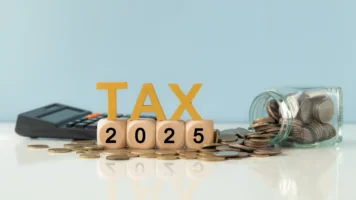Which of These 5 Money Personalities Are You?
Are you a spender or a saver? Are you a risk-taker or safe-gambler? Do you hold onto money with your long-term goals in mind? Understanding how you think about money and how you interact with money helps you to maximise your wallet and grow your financial future. There are 5 money personality types – which one are you?
And what’s better than optimising your cash flow?
Not much.
So, to help you figure out your strengths and weaknesses when it comes to money, let’s take a close look at the five most common money personalities. Once you identify which money personality you are, you’ll be able to discover how to manage your money in the best way possible.
After all, good financial management isn’t so much about building spreadsheets but understanding what makes you tick.
1. The Risk Taker
A Risk Taker loves the thrill of a deal. They throw caution to the wind in order to take a chance on something right now. They gladly put their money on the line for the potential of a big win. They enjoy the adrenaline from seeking money now, even if there’s a bit of risk involved.
Risk Takers are more excited at the prospect of adventure than stowing away money for the future. They invest in nontraditional ways, such as:
- Putting money in high-risk investments
- Investing in emerging foreign markets
- Trying out a new business
- Gambling
- Being a venture capitalist
- Participating in currency trading
So, rather than clipping coupons and hunting for a bargain, they’re focused on options with much higher stakes.
Some friends of the Risk Taker may find this money personality exciting and innovative. But, if a Risk Taker is in a relationship, it may cause the partner frustration, especially if the couple is working toward goals like saving up for a new vehicle or once-in-a-lifetime holiday.
2. The Frugalist
Referred to as frugal, cheap, or even a tightwad, this money personality type is hyper-focused on saving money—not spending it. In fact, a whole movement has sprung up around the idea of being frugal.
For the Frugalist, spending money, especially on material goods, is not considered fun. Putting money toward even everyday things can cause them anxiety. With plenty of money in the bank, the Frugalist still looks to accumulate more. They’ll put their own desires aside in order to add another buck or two onto their pile.
A Frugalist, however, does keep some cash on-hand for emergencies and to delight in some pleasures every now and then—like to take a holiday or enjoy a latte from their favourite coffee shop. Overall, Frugalists tend to hold onto their money for future purposes, like retirement or for a downpayment on a house.
Friends of the Frugalist may have a hard time understanding this money personality, because rather than living in the here and now, the Frugalist is very future-oriented. The Frugalist feels they’re smart with their money because they’re always looking ahead.
Common habits of Frugalists include:
- Clipping coupons
- Shopping for online deals
- Cutting corners on the quality of items they purchase
- Looking for sales
- Buying their clothes and home goods at second hand shops
While they often save money with these approaches, sometimes Frugalists end up paying more in the long run because they have to re-buy something that wasn’t the best purchase in the first place.
3. The Big Spender
The Big Spender money personality type believes that the present is king. They’re definitely not afraid to go big, even if it leaves them in a bind down the road.
How does a Big Spender use their money? On everything: from fancy cocktails, to impromptu trips to Fiji. When they see an exotic painting in an art gallery, they need to have it. If they spot a luxurious sofa in a furniture shop, they have a shop worker ring it up for them.
A Big Spender can be generous, though, buying things like a round of shots for everyone at the bar. ‘Carpe diem’ is often the tagline of a Big Spender.
While some friends might appreciate the ‘go big’ mentality of the Big Spender, there are times where this approach does catch up with them.
4. The Money Master
This money personality type comes rightly by its name. People who live by this style have truly mastered their money. With a combination of hard work, financial goals, and an eye for quality investments, the Money Master no longer has to worry about money—either now or in the future.
What are the secrets of a Money Master?
Well, they usually:
- Budget consistently
- Save money monthly, rather than in lump sums
- Watch for deals, coupons, and sales
- Use loyalty cards to save even more
- Resist purchases they don’t really need (like fancy coffee or new shoes)
- Buy in bulk when they can
- Deposit into their retirement
- Listen to podcasts about money
- Utilise high-interest savings accounts
- Are well-informed when it comes to a diverse investment portfolio.
While always looking to the future, Money Masters also keep a close eye on the present. They don’t deprive themselves of purchases that will make them happy—and they’re sure to reward themselves along the way.
5. The Cash Clueless
Not interested in much of the details, the Cash Clueless refuses to open up bills or log on to their online banking system. Their money vanishes due to many streaming services, dinners out, magazine subscriptions, and online shopping sprees—all without much thought or care for budgeting. Overdraft fees become an evitable part of the routine, because how much money is in the bank remains a mystery.
This money personality is a beginner when it comes to personal finances. They may not know about credit card perks, loyalty cards, or saving on everyday things like decor for their apartment.
The Cash Clueless, however, has the most potential of any money personality (besides the Money Master, of course). The Cash Clueless still have the ability to make smart investments and save for the future. With a little time to understand the basics of personal finance, the Cash Clueless can learn to save money fast.
Know which money personality you are? Continue playing to your strengths and minimising your financial risk. If you’re looking to optimise any outstanding debt, consider a consolidation loan to accelerate your savings—starting today.











